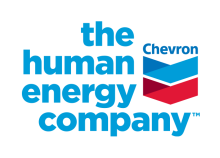23rd Process Plant Safety Symposium (PPSS)
The Process Plant Safety Symposium (PPSS) is one of five parallel sessions that comprise the Global Congress on Process Safety (GCPS). The PPSS conference focus is to provide proven best practices, perspectives, methods and tools that can be readily practiced and provide value to personnel at the plant level.
Topics for this conference includes:
PPSS Chair and Vice Chair
-
Laura Ankrom & Nicole Loontjens, PPSS_chair@aiche.org
Session Topic Descriptions:
When Two Cultures Collide, do they Emerge Friend, Foe, or True Ally?
Many companies have undergone some sort of merger or acquisition over the course of their existence with the intent to be allies and preserve the best of the best. This session is seeking papers on the integration of two (or more) organizations with an emphasis on the tactics, lessons learned and results regarding the process safety culture aspects and their on impact day-to-day plant operations.
The Good, the Bad and the Ugly of Virtual Work Environments
This past year proved to be challenging in many ways and forced us to think ‘outside the box’ in order to continue to meet internal and regulatory process safety demands. This session seeks papers on lessons learned and best practices used when conducting virtual process safety studies, audits, etc. In particular, insights on what you learned and tools or implementation strategies you will adopt and perhaps become your ‘new way of doing things’ are encouraged.
Increasing the Value of Facility Siting
Facility siting plays an important role in risk management, but we intentionally focus on impacts to occupied buildings and miss the opportunity to prevent the leak in the first place or improve emergency response planning. This session is seeking papers on how organizations are integrating facility siting into the overall risk management strategy for high severity consequences that address not only the scope within API 752/753/756, but also as input into training programs, PHA teams, emergency response programs, and determination of EHS Critical safeguards and mitigation systems.
The Intersection of Cybersecurity and Process Safety
As technology continues to be more innovative across our interconnected world, we are finding new ways to address threats and integrate cybersecurity risk management into process safety. This session is seeking papers related to the intersection of process safety and industrial cybersecurity. In particular, how organizations are addressing the security clauses in the ISA 61511 standard and the technical report ISA-TR84.00.09-2017 as well as best practices in assessment methodologies.
You Have Completed Your DHAs - Now What?
All facilities that handle combustible dusts must complete Dust Hazard Analyses (DHAs), per NFPA 652. This session is seeking papers on resolving DHA recommendations and implementing process safety practices for handling the hazards and risks associated with combustible dusts. Discussion of difficult challenges are encouraged.
Meaningful Leading Indicators that Drive Change
How do you choose leading indicators that will make a difference for your plant or company? Plenty of resources provide examples of leading indicators, but tracking all of them would overwhelm any organization. Besides being overwhelming, how many truly provide meaningful and timely feedback that is actionable? This session is seeking strategies, challenges and proven results around leading indicators that drive change and provide management with a new understanding of risk.
How We Define, Access, and Verify SOLs and CODs
It is standard practice to document safe operating limits (SOLs) and consequences of deviation (CODs), but there is very little guidance on how these should be defined or where best to document this information. Are they easily accessible and useful while simultaneously meeting the regulatory requirements and avoiding redundant documentation? This session is seeking papers outlining best practices in managing and documenting SOLs/CODs and how you verify the SOLs meet the original process safety time.
We want our plants to run well – quiet, boring operations are our goal, but that can get redundant and rote for operations and maintenance employees, which can lead to complacency and blindness to hazards. How do you develop a conscious mindset in your operators and maintenance employees? This session seeks papers on practices implemented that help workers continuously look for hazards and ways to address them.
Top Technologies Everyone Should Know
Do you have a favorite technology that you or your organization has invested in that has proved to be a great investment? Or have you found a substitute instrumentation or other technology to replace a high risk, hazardous task? It could be something that was implemented 30 years ago or last month, but your organization has found huge value in it. Papers for this session could focus on any aspect of manufacturing – technology that supports operations, maintenance, training environments, etc.
Repeat Incidents - Enough Already!
We start meetings with safety moments, review incidents during PHAs, and make an effort to keep the lessons learned in the forefront of our day-to-day work. In addition, many process safety practitioners have had a true wake-up call, either through a real-life event, plant incident or an impactful near miss. Yet, we continue to have repeat incidents! This session is seeking papers on innovative ways your organization has continued to learn from the past and ensure lessons are not only reviewed but also retained.
Attorney Client Privilege Audits and Investigations
Deciding whether to conduct an audit or incident investigation under attorney client privilege is a risk-based call. In certain circumstances, the protection allows an organization to freely uncover their most vulnerable flaws and properly address compliance gaps before an agency conducts an inspection. This session is seeking papers on the challenges and benefits of executing audits and incident investigations under attorney client privilege as well as best practices around preserving the legal protection of documentation when taking corrective action.
GCPS Joint Session: Case Histories
Reviews of process safety incidents provide valuable learning opportunities. This session invites papers to help understand the causes and lessons learned from incidents in the industry with an emphasis on events that have helped define and develop the process safety field over the years.
















